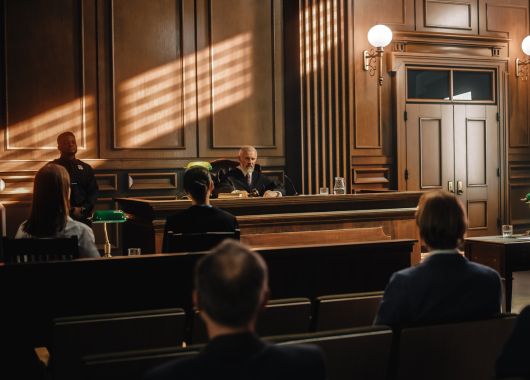Appellate Victories
Lloyd & Lloyd has an enviable record of victories in the courts of appeal, both in the Court of Civil Appeals, as well as the Oklahoma Supreme Court. Although numerous appellate victories are unpublished, a number of opinions are published.
1. Fanning v. Brown, et al., 2004 OK 7, 85 P.3d 841. In this groundbreaking case involving nursing home abuse, a resident sued the owners and former owners of the nursing home. Because all of the corporations that had owned the nursing home had either dissolved or went bankrupt, Lloyd & Lloyd sued the shareholders individually and attempted to “pierce the corporate veil”.

The Oklahoma Supreme Court unanimously allowed Lloyd & Lloyd’s client to sue the shareholders of a nursing home directly, especially when such shareholders failed to obtain liability insurance for the nursing home.
2. Sproles v. Gulfcor, Inc., 1999 OK CIV APP 81, 987 P.2d 454. In yet another victory for working Oklahomans, Lloyd & Lloyd fought for years to obtain workers’ compensation benefits for an injured worker.
In Sproles, Lloyd & Lloyd successfully got an award for a workers’ compensation client. However, the company refused to pay and instead dissolved. Lloyd & Lloyd then filed suit against the corporation’s shareholders and successfully pierced the corporate veil. In the end, Lloyd & Lloyd was able to collect the workers’ compensation award against the company’s shareholders personally. Sproles v. Gulfcor, Inc. stands as a warning to other companies that might attempt to avoid paying workers’ compensation award by dissolving or filing for bankruptcy.
3. Parsons v. OXY USA, Inc., 1998 OK CIV APP 43, 964 P.2d 913. This case was a victory for working Oklahomans in that it made it easier for injured workers to collect the maximum workers’ compensation rate under the law.
4. Mrs. Baird’s Bakery v. Cox, 2005 OK 28, 112 P.3d 1168. This case involved an employer’s attempt to avoid paying workers’ compensation benefits for an injured worker. The Oklahoma Supreme Court unanimously held that if an injured worker re-injures himself while performing non-job-related work, such worker may still be entitled to receive workers’ compensation benefits for all of his injuries.
